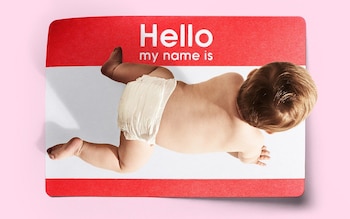I’m 39, not 89, and yet I find myself very much in agreement with an organisation called Wales Seniors Forum, which, as you might imagine, is an organisation for older people in Wales, and it has recently launched a campaign for greater access to public lavatories. Quite right, I say, as someone who often finds herself out and about in London, nipping into a nearby Pret only to find they’ve put a hateful keypad on the door and you need a special code to access them, and to get the special code you have to buy a sandwich. Sigh.
One of the contributors to the Welsh campaign, a 75-year-old chap called Martin, says he’s stopped drinking water two hours before leaving the house. “Before you go out you need to think, ‘Will there be the chance to use the toilet in a café or not?’ You end up thinking, ‘Do you want to go?’ Sometimes you just choose to stay home instead, because there is no pleasure in being constantly worried about it.”
Martin, I couldn’t agree more. The situation is abysmal. You’re up against not just keypads but cafés with fierce signs in the window declaring the facilities are for customer use only, or loos that are closed, or out of order, or you need a 20p piece. In desperation, I once fibbed in a café with a fierce sign, claimed that I was pregnant, and they kindly did let me use their loo in that case. But this trick is unlikely to work for poor old Martin.
It was a terrible fib that I shouldn’t have had to make. Nor should Martin have to stop drinking water two hours before he fancies going out. But what alternative is there? Last year, Raymond Martin, the managing director of the British Toilet Association, declared that half of Britain’s public lavatories have vanished in the past decade. Sorry, I don’t want to put you off your kippers, but what if you have bowel issues? What if you’re actually pregnant? What if you have small children? “I don’t want to drop a million pounds in Caffè Nero with two-year-old twins in tow,” cries one exasperated mother.
The trouble is, councils are under no legal obligation to provide public loos and they’re cash-strapped. According to The Economist, the running cost of a busy public lavatory is between £60,000-80,000 a year, although this does slightly make me think: are they buying that expensive and unnecessary quilted lavatory paper? The Government debated appointing a “lavatory tsar” last year, but the discussion soon became dominated by shouting about gender-neutral bathrooms and the role was quietly shelved. So here we all are, bursting with nowhere to go.
My friend Matthew suggests making use of swanky hotels. “There’s always a lavatory on the ground floor, staff are used to frequently-changing faces, and the bog roll is top notch. Works in every major city in the world.” So there’s a tip for you. Claridge’s, several people tell me, is their favourite stop-off.
Except what if you’re not near a smart hotel in Mayfair? In that case, how about a nice department store? Peter Jones’s facilities have, in my opinion, gone downhill in recent months and now smell of drains. Also, you often need a headtorch and a map to find department store loos, which tend to be on the sixth floor, right at the back, hidden behind haberdashery. “What I will mourn most about Fenwick closing is their incredible loos,” laments one friend. Another has a cautionary tale about John Lewis. Not long ago, she darted into a cubicle and kicked a brown pebble out of the way. “Except it wasn’t a pebble, was it,” she tells me. “The trainers I had on that day (renamed ‘the poo shoes’) sat on our doorstep for about three months and then got binned as I couldn’t face handling them.” Have soaring labour costs meant that certain places have cut back on cleaning staff? It feels like it.
Supermarkets are handy (if they have lavatories), and I can vouch for the Waitrose in Beckenham if you’re nearby and in need. Certain train stations have upped their game too, and Waterloo seems to be a big favourite among those I canvass, although I will say that there’s often a long queue for the ladies’ at Victoria. But then, we’re used to that, aren’t we, girls? In certain towns and cities now, you may come across freestanding public urinals for the lads, which must be jolly lovely for them. We women are presumably supposed to make use of glass urinal bottles, just as Victorian women did under their big skirts back in the day (there’s one on display in the Science Museum, if you’re interested).
A staggering number of people reply to my questions about public lavatories with impressively detailed knowledge of restaurant, café and museum loos. It feels as if we’re increasingly stepping out these days and thinking to ourselves “Well, it’ll be all right if I’m caught short, because there’s that good coffee shop close by, which always has a plentiful supply of loo roll and soap.” The sushi chain Itsu has “lovely” ones, say several people. The British Museum is “rather good” says another. Shell has the best service station loos, advises my friend Tash. There’s an app called Flush you can download which shows you the closest facilities. Someone else says she took a screenshot of a note on TikTok which revealed the codes for all the Pret bathrooms in London, and three months later they’re still working.
I find myself oddly proud of these friends and acquaintances for divulging such personal secrets, but also think: why have we been forced to develop these reconnaissance skills? In Japan and Singapore, you have no such problem. Jerusalem also has excellent public loos, apparently. Two weeks ago, while in New York, I nervously tiptoed into a Central Park loo, only to find it spotless, with enough paper for an encampment of soldiers. We’re the country that produced Thomas Crapper, and yet, brave a park loo now and you may take several days to get over it. A Cambridge-based contact says that the Lib Dems are promising to improve the lavatory situation there “and I honestly might vote Lib Dem for the first time in 20 years”. It’s an issue that plenty of us may titter about, but it’s also increasingly urgent. In a big election year, take note, politicians, and consider amending your manifestos accordingly.
Disclaimer: The copyright of this article belongs to the original author. Reposting this article is solely for the purpose of information dissemination and does not constitute any investment advice. If there is any infringement, please contact us immediately. We will make corrections or deletions as necessary. Thank you.



